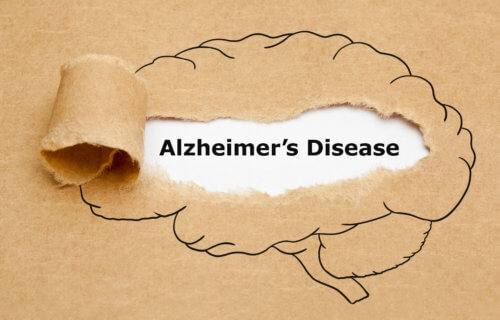BOSTON, Mass. — Inflammation in the brain is generally not something you want to hear when it comes to good health. In fact, studies over the years point to inflammation being a key driver of cognitive decline in old age. However, in a “totally unexpected” discovery, researchers say it appears that not all of the proteins which cause inflammation are harming the brain. Their study reveals two inflammatory proteins which seem to be preventing Alzheimer’s disease, the most common form of dementia.
A team from Massachusetts General Hospital (MGH) and the Harvard Aging Brain Study (HABS) say a pair of inflammatory messenger proteins, called cytokines, are actually slowing the rate of cognitive decline in older adults. In a study of nine cytokines in the blood, these two seem to protect the brain from both amyloid beta plaque buildups and tau protein tangles — which are both key contributors to Alzheimer’s disease.
“These are totally unexpected results,” says co-senior author Rudolph Tanzi, PhD, in a media release.
The vice chair of Neurology and co-director of the Henry and Allison McCance Center for Brain Health at MGH adds the discovery could eventually lead to a new way of identifying people at greater risk for dementia.
Revealing Alzheimer’s link to the immune system
In 2008, Dr. Tanzi’s team discovered CD33, the first Alzheimer’s gene with a link to the human immune system. Since that breakthrough, most of the Alzheimer’s-causing genes scientists have uncovered also have a connection to immune health. This has led many studies to conclude that immune system dysfunction — or problems with the body’s ability to fight infections — plays a major role in Alzheimer’s onset. Scientists have also discovered that dementia patients typically have higher levels of various inflammation-causing cytokines in their blood.
Researchers note that, until now, the immune system’s role during the earliest stages of Alzheimer’s has been unclear. To see how these cytokines may help physicians predict who will and won’t develop dementia, the team gathered 298 men and women between the ages of 50 and 90. Specifically, all of these volunteers still enjoyed normal cognitive health at the start of the study, but had deposits of amyloid beta in their brains.
“We wanted to know why some people have amyloid in their brain and don’t seem to be affected, while other people experience cognitive decline,” explains study co-senior author Jasmeer Chhatwal, MD, PhD, a neurologist at MGH and a HABS co-investigator.
Through annual blood sampling and PET brain-imaging scans, researchers found that patients with significant buildups of amyloid beta who also had high levels of the pro-inflammatory cytokine interleukin-12 (IL-12) experienced less cognitive decline as they aged.
The study finds having more IL-12 in the brain also resulted in patients having fewer tau tangles. Additionally, patients with higher levels of the cytokine interferon-gamma (IFN-γ) displayed less mental decline, regardless of how much amyloid beta was in their brains.
Designing a new ‘checkup from the neck up’
So what’s causing some inflammatory proteins to actually help fight off dementia? Study authors believe this counterintuitive behavior may reveal that some patients have an immune system that is more capable of fighting off infections.
Dr. Tanzi notes this assumption would fit with a theory by the late Harvard researcher Dr. Robert Moir, who suspected that amyloid beta forms in the brain as a way of defending against infections. Unfortunately, this protective shield eventually clogs up the brain and leads to irreversible damage later in life.
The new findings show IL-12 and IFN-γ “may nip infections in the bud, before they can leak into the brain and induce Alzheimer’s pathology,” according to Tanzi.
Study authors believe IL-12 and IFN-γ will one day become key measures doctors can look at to predict dementia risk. Right now however, such a tool doesn’t exist yet.
“We don’t have a ‘checkup from the neck up’,” Tanzi says.
The team says the next step in their research will be to uncover how exactly these inflammatory proteins defend against declines in mental ability and promote healthy aging.
The findings appear in Alzheimer’s & Dementia: The Journal of the Alzheimer’s Association.
